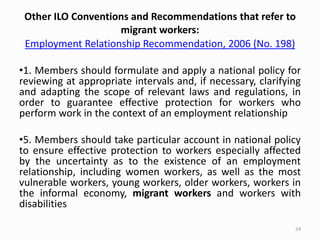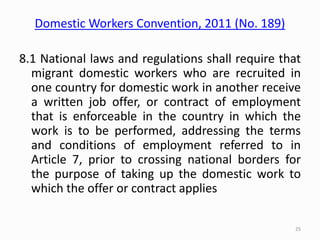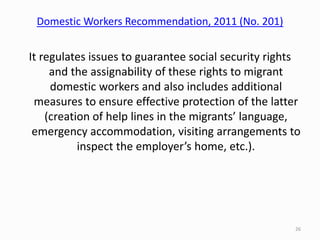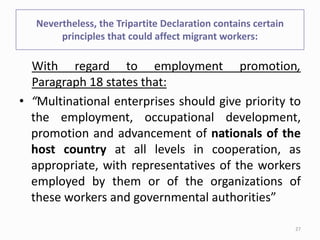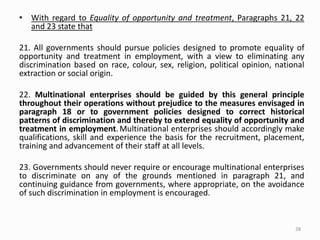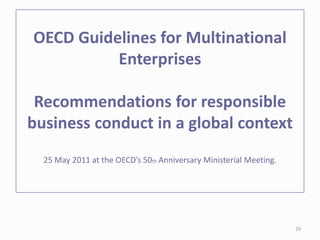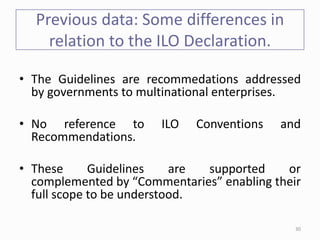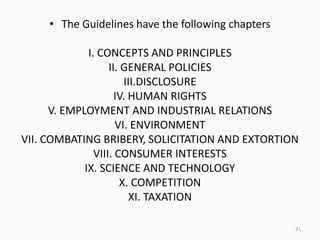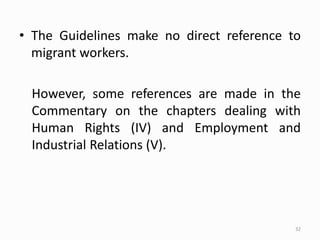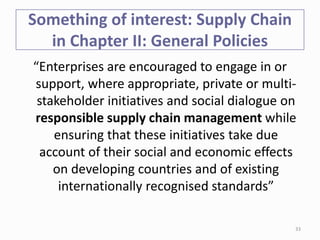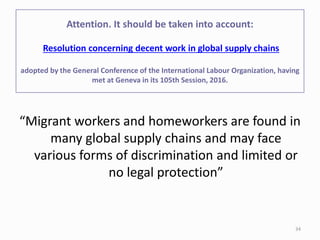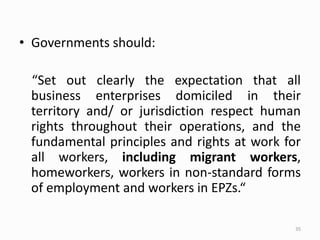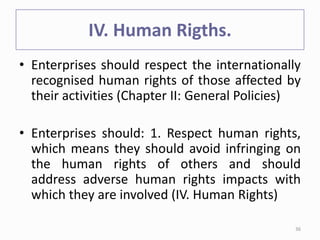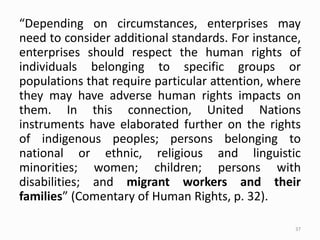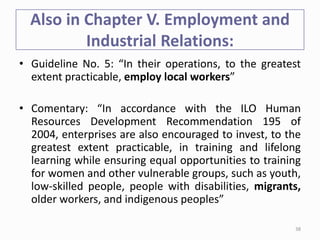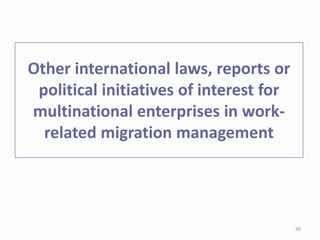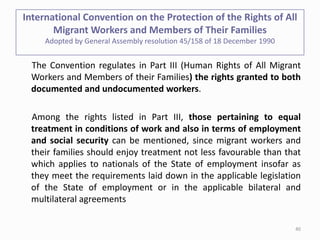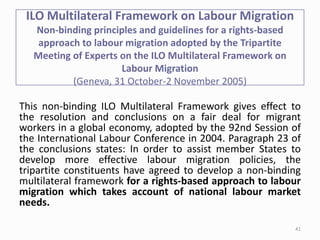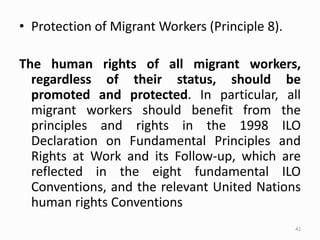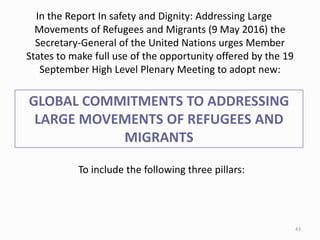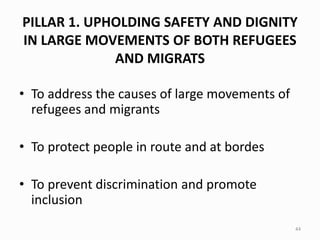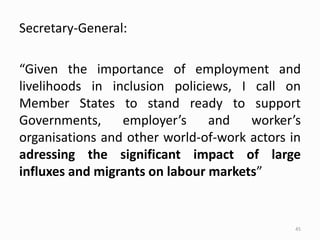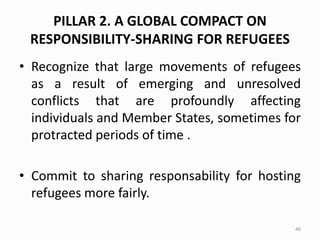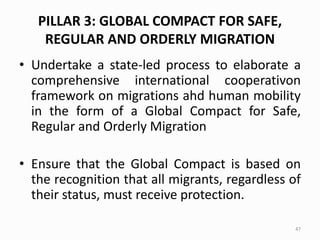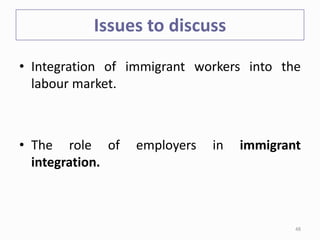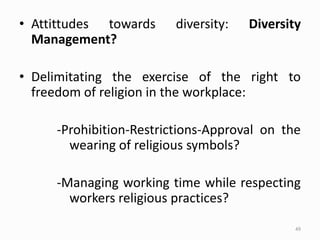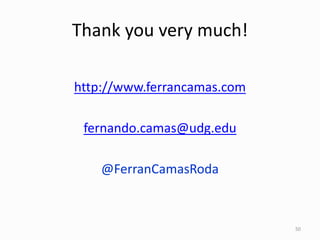The document discusses the implications of international migration for multinational enterprises (MNEs), highlighting challenges related to forced migrations and varying migration policies. It emphasizes the role of international laws, such as the Tripartite Declaration of Principles and OECD Guidelines, and the need for MNEs to promote equality of opportunity and treat migrant workers fairly regardless of their status. Additionally, it addresses the importance of cooperation among countries to manage migration effectively and ensure the rights of migrant workers are protected.
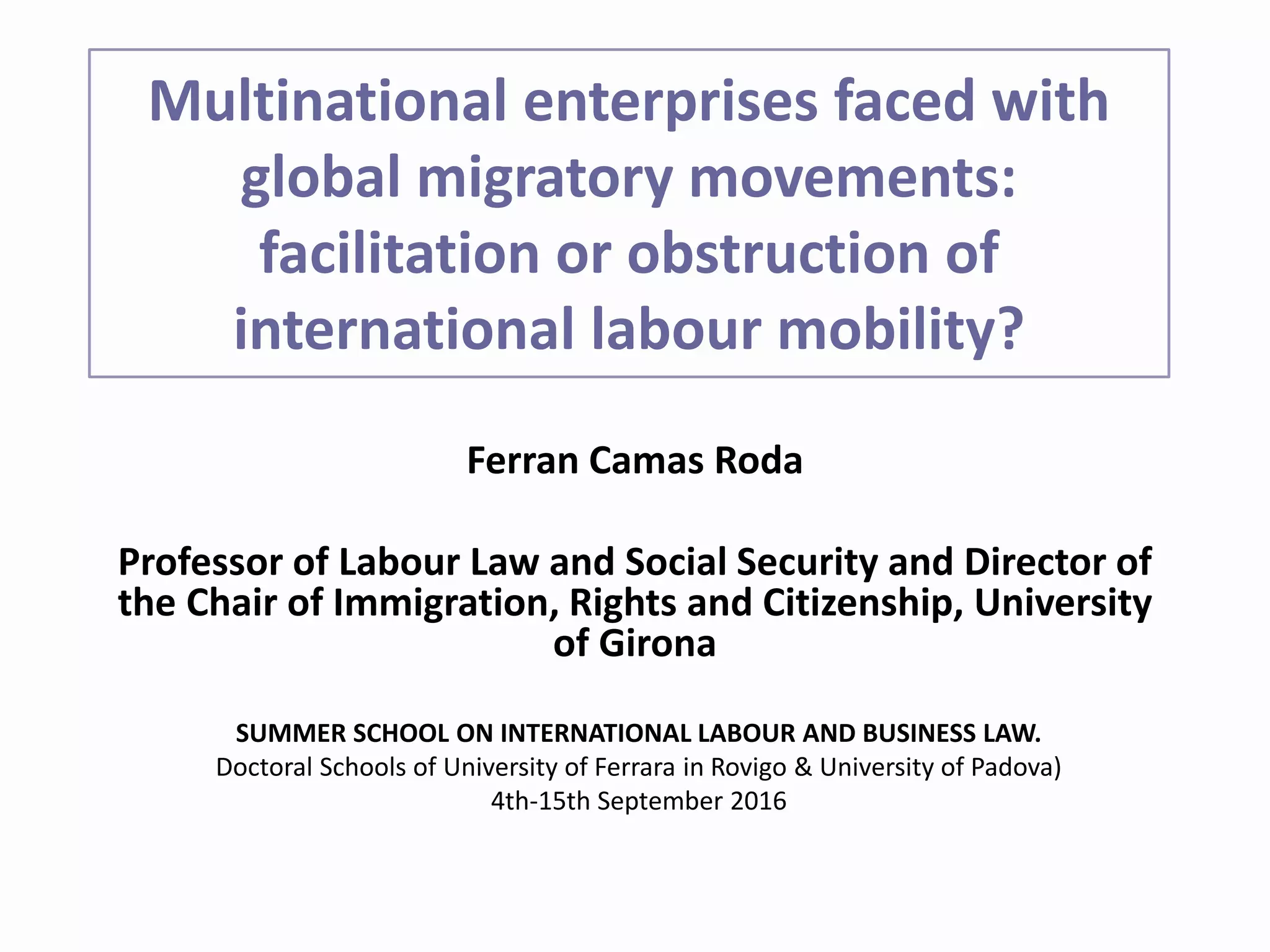
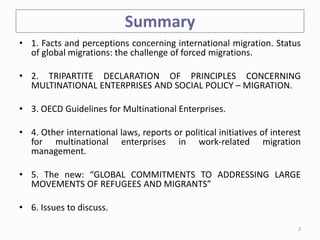
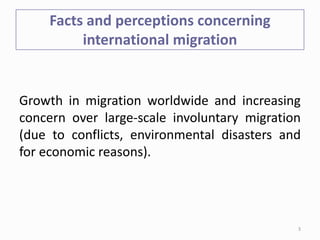
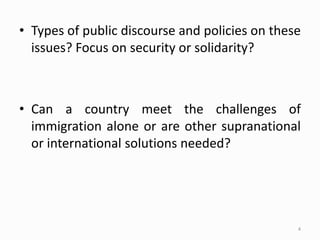
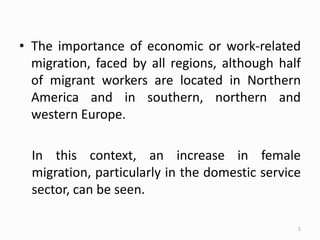
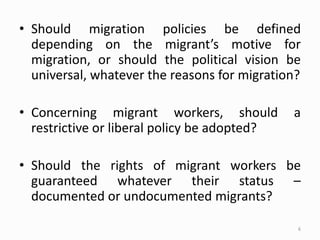
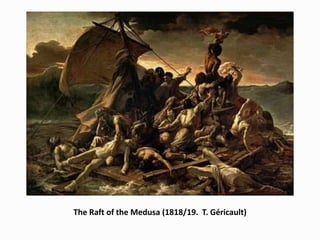
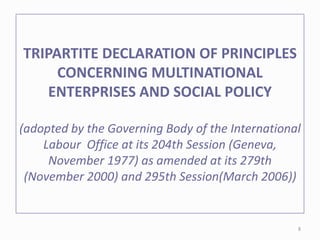
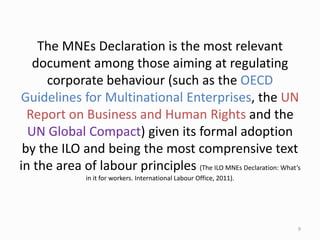
![Basic premises of the Declaration
The aim of the Declaration is to promote the
positive contribution that Multinational
Enterprises (MNEs) can bring to social and
economic progress, a goal that will be promoted
through laws and practices adopted by
governments.
[Tension between the view that MNEs bring
benefits if they are subject to the national laws of
host countries and the view advocating that
MNEs should be allowed to operate without
constraints]
10](https://image.slidesharecdn.com/isummerschoolmultinationalenterprisesfacedwithglobalmigratorymovements-161006075915/85/Multinational-enterprises-faced-with-global-migratory-movements-10-320.jpg)
![• [The concept of a Multinational Enterprise is not
defined, but guidance is provided in Paragraph 6
which states that]: “Unless otherwise specified,
the term “multinational enterprise” is used in this
Declaration to designate the various entities
(parent companies or local entities or both or the
organization as a whole) according to the
distribution of responsibilities among them, in
the expectation that they will cooperate and
provide assistance to one another as necessary to
facilitate observance of the principles laid down
in the Declaration”.
11](https://image.slidesharecdn.com/isummerschoolmultinationalenterprisesfacedwithglobalmigratorymovements-161006075915/85/Multinational-enterprises-faced-with-global-migratory-movements-11-320.jpg)
![• [Voluntary application] Paragraph 7: ”This
Declaration sets out principles in the fields of
employment, training, conditions of work and
life and industrial relations which
governments, employers' and workers'
organizations and multinational enterprises
are recommended to observe on a voluntary
basis; its provisions shall not limit or
otherwise affect obligations arising out of
ratification of any ILO Convention”
12](https://image.slidesharecdn.com/isummerschoolmultinationalenterprisesfacedwithglobalmigratorymovements-161006075915/85/Multinational-enterprises-faced-with-global-migratory-movements-12-320.jpg)
![• [Promoting some international conventions]
Paragraph 9. “Governments of States which
have not yet ratified Conventions Nos. 29, 87,
98, 100, 105, 111, 122, 138 and 182 are urged
to do so and in any event to apply, to the
greatest extent possible, through their
national policies, the principles embodied
therein and in Recommendations Nos. 35, 90,
111, 119, 122, 146, 169, 189 and 190”.
13](https://image.slidesharecdn.com/isummerschoolmultinationalenterprisesfacedwithglobalmigratorymovements-161006075915/85/Multinational-enterprises-faced-with-global-migratory-movements-13-320.jpg)
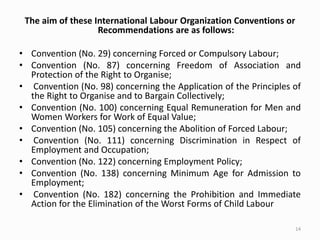
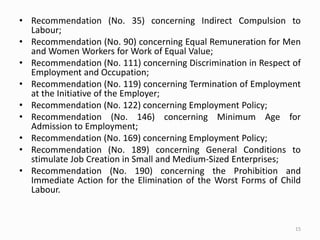
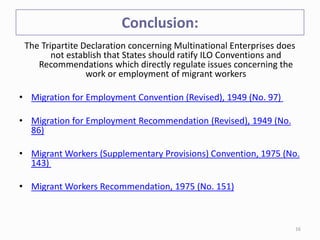
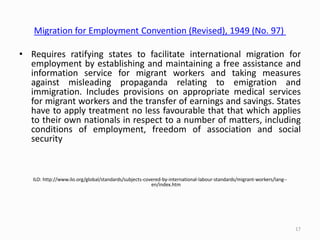
![[Something of interest: Article 6]
1. Each Member for which this Convention is in force undertakes to
apply, without discrimination in respect of nationality, race, religion or
sex, to immigrants lawfully within its territory, treatment no less
favourable than that which it applies to its own nationals in respect of
the following matters:
–(a) in so far as such matters are regulated by law or regulations, or
are subject to the control of administrative authorities-
(i) remuneration, including family allowances where these form
part of remuneration, hours of work, overtime arrangements,
holidays with pay, restrictions on home work, minimum age for
employment, apprenticeship and training, women's work and the
work of young persons;
(ii) membership of trade unions and enjoyment of the benefits of
collective bargaining;
(iii) accommodation;
18](https://image.slidesharecdn.com/isummerschoolmultinationalenterprisesfacedwithglobalmigratorymovements-161006075915/85/Multinational-enterprises-faced-with-global-migratory-movements-18-320.jpg)
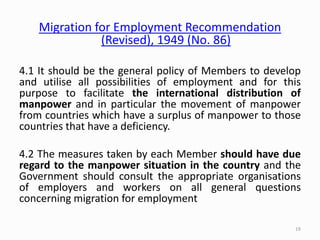
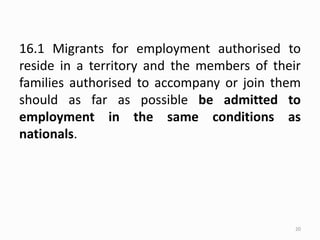
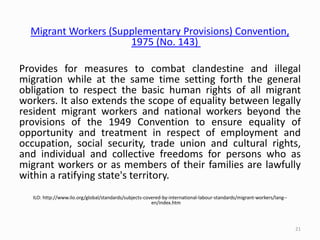
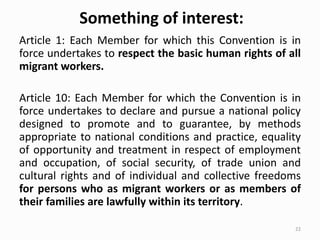
![Migrant Workers Recommendation, 1975 (No. 151)
[Something of interest: Article 8.3]
“Migrant workers whose position has not been or
could not be regularised should enjoy equality of
treatment for themselves and their families in
respect of rights arising out of present and past
employment as regards remuneration, social
security and other benefits as well as regards trade
union membership and exercise of trade union
rights”
23](https://image.slidesharecdn.com/isummerschoolmultinationalenterprisesfacedwithglobalmigratorymovements-161006075915/85/Multinational-enterprises-faced-with-global-migratory-movements-23-320.jpg)
